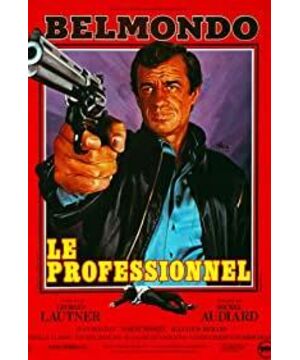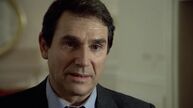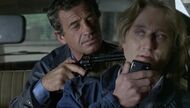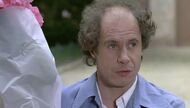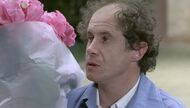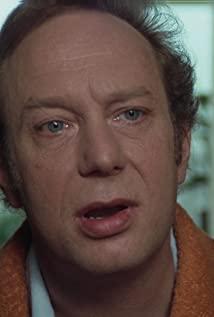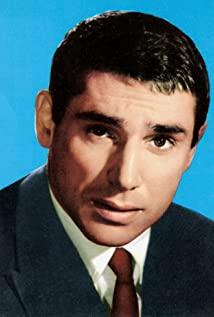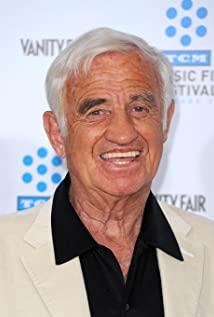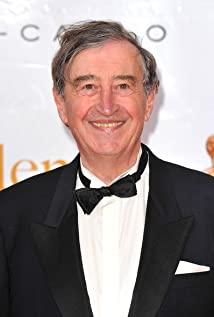Beaumont, a member of the French special forces, was ordered to assassinate the president of a certain African country, but was betrayed by the French government and became a prisoner of the African country. During the years in the prison camp, he suffered inhuman abuse, and finally, with the help of his inmates, he escaped the prison successfully and returned to Paris...
The noisy train station, shuttled through the crowd, and the quiet theme music gradually sounded. Beaumont sauntered into the telegraph counter and sent a telegram to his former workplace using his old password. This officially announced his return. "The task will be carried out" is a small number, which once again brought the government that betrayed itself into embarrassment.
Faced with the predicament, the strong government did not choose to reconcile. Allowing governments to compromise with individuals is a small-probability event in both the East and the West. They started organizing response plans. Strange things happened, the secretary of the intelligence bureau is his lover, the core of the business is his old friend, and the supervisor is his old boss. Even the special advisor they brought in was so stubborn that he was his best student. Undoubtedly, the current situation speaks volumes of Beaumont's past glory. The careless French government gave up a pawn that should have been the last.
Compared with the negative attitude of everyone, it seems that there is only one successor official in the entire intelligence bureau who is most dedicated to this matter. Although this person has a French romantic face, he obviously has a German enterprising spirit. The opportunity for promotion has finally come, and perhaps his heart has long been secretly happy.
The trump card is the trump card after all. Beaumont used his performance to tell the new people in the intelligence agency that it is still my time. In the face of a powerful state apparatus, Beaumont is witty and courageous, and is always ready to go. They used his wife as a bait, but were easily deceived by him who dressed up as a beggar, and before leaving, they did not forget to remind them with an alarm clock: I'm sorry, you just missed the best part. Using his friends as bait, he managed to get out of the game for himself by cleverly using the media. Playing may no longer be used to describe the embarrassing and miserable appearance of the intelligence bureau, because their fragile nerves have been constantly ravaged by Beaumont since the moment they received the telegram.
The plot culminates in the fact that the former African president is visiting France. Beaumont began to make moves. First, he used a quick gun duel like a western cowboy to help "German Heart" to complete the final release (if the director let him continue to be ravaged like this, no one could see it). Then he successfully designed the layout, allowing the sniper sent by the government to shoot and kill the African president who had an indissoluble bond with him in public. Although you have abandoned me, I still have to complete the task you gave me. Beaumont responded to his own abandonment with a dark humor.
At the end of the movie, he walked out of the temporary residence of the president calmly and walked straight to the helicopter that was supposed to pick up the president in front of his friends and the so-called civil servants. The situation overwhelmed the French government, and finally the minister gave an order for the sniper to "stop him", and just as he got on the plane, the sniper shot him. Get to know this lone ranger who is constantly causing trouble for the government, intentionally or unintentionally.
At the end of the film, the protagonist dies on the grass, the breeze blows gently on the corner of his clothes, the camera zooms out little by little, and the theme music plays again. The camera was shot from the sky from the perspective of a helicopter, as if the soul was detached from the body and turned into air, looking at the world with a little nostalgia, and finally my soul gradually flew to the distant space...
Or Rachmaninoff, "Leaving the motherland, the cry of any artist will become pale." People are social animals, no one wants to be abandoned, no one wants to stand on the opposite side of the majority. Living in isolation is cool, but how many people can resist that kind of loneliness? Those who make revenge their goal in life are destined to end in tragedy.
In fact, our Beaumont is not the kind of hopeless person, he knows very well that he cannot resist the sweetness of his lover, the warmth of his friends and the tears of his wife. So he sent the telegram declaring war as soon as he got back to Paris, pushing himself into a corner. Beaumont's actions were not a simple revenge, he was shouting at the arrogant higher-ups with his actions. He is proclaiming his existence and emphasizing that he cannot be abandoned. One Beaumont tragedy is enough, do you want to make more Beaumonts? May Beaumont be an end.
In fact, I was very young when I saw this film for the first time. Apart from the exciting fighting and chasing scenes, what impressed me the most was the melodious and soothing theme music in the film. It was later learned that this was the string staccato theme for the "The Wind, The Scream" segment. Oboe, flute and other woodwind instruments alternate with each other, creating a touch of sadness, which is reminiscent of the bleak French autumn scenery.
In fact, this piece is a variation of "Chi Mai". The film's leading actor, Jean Paul Belmondo, liked the melody of "Chi Mai" so much that he asked Ennio Morricone to make a variation and used it in the film, which is "The Wind, The Scream".
At midnight, on an empty street, when this song rings in your ears, you will experience a strong sense of fate and the helplessness of fate. Or, during the journey, with the accompaniment of this song, the train flies by, the trees outside the window gallop past, and the feeling of life being impermanent and helpless will come to my mind...
View more about The Professional reviews


